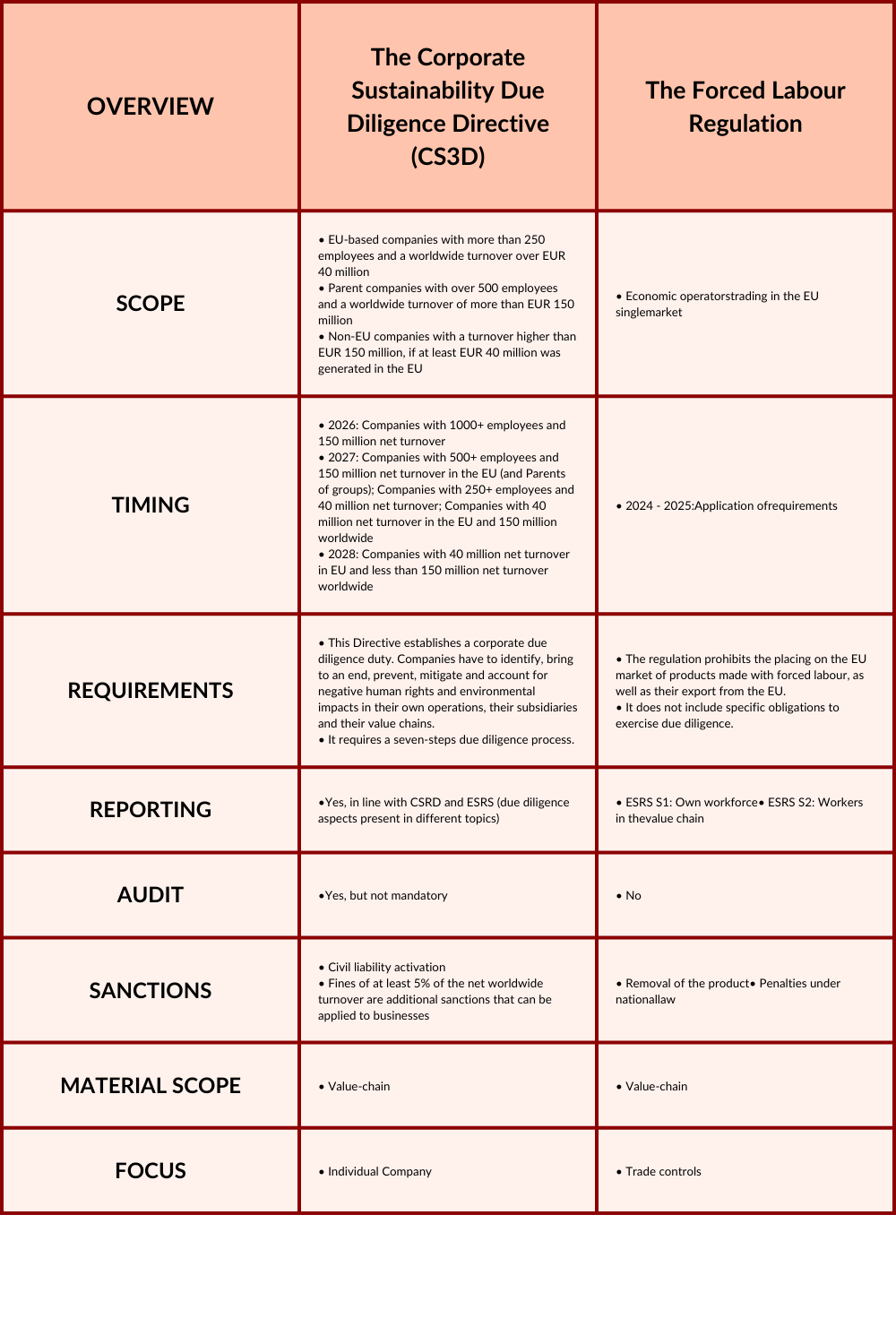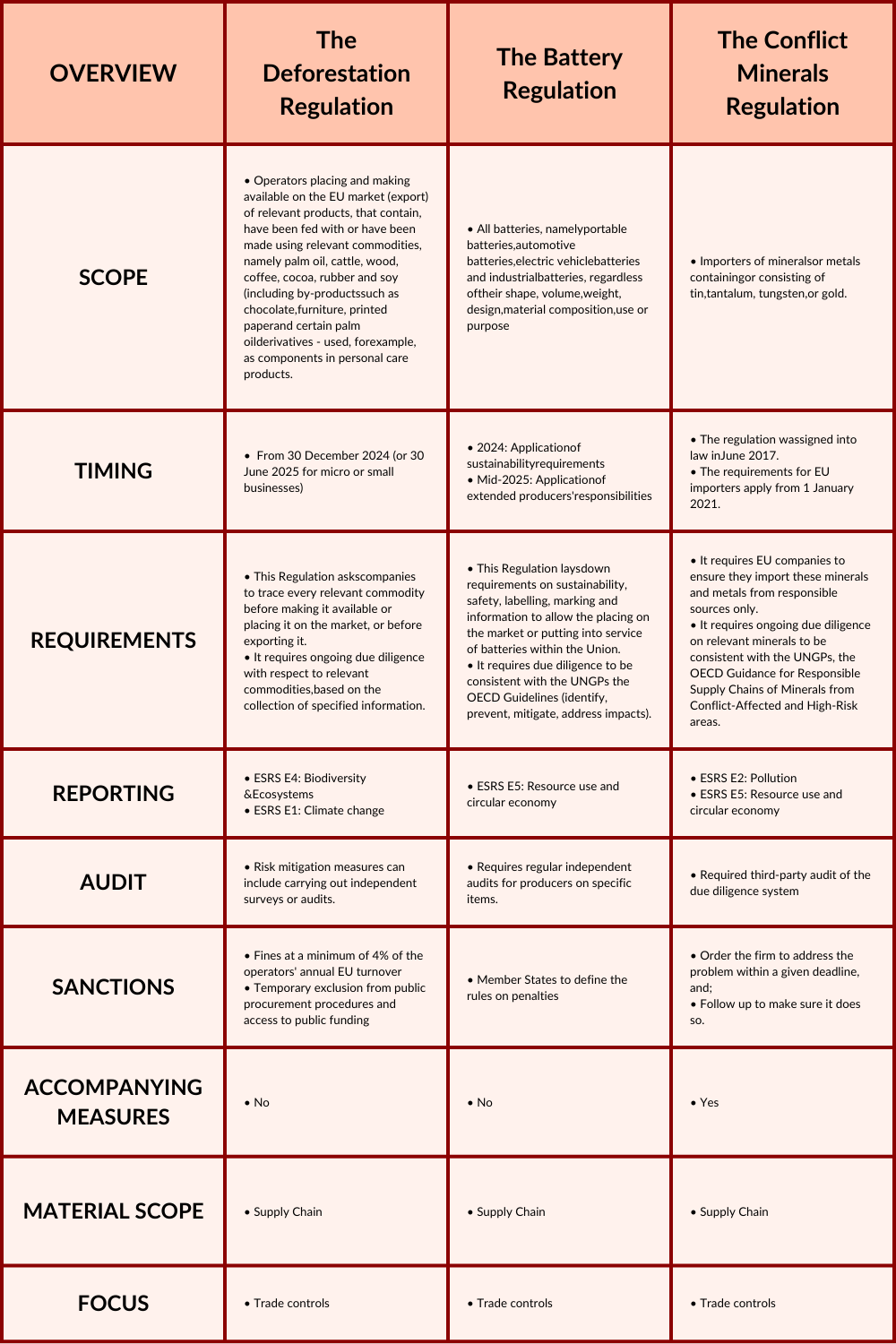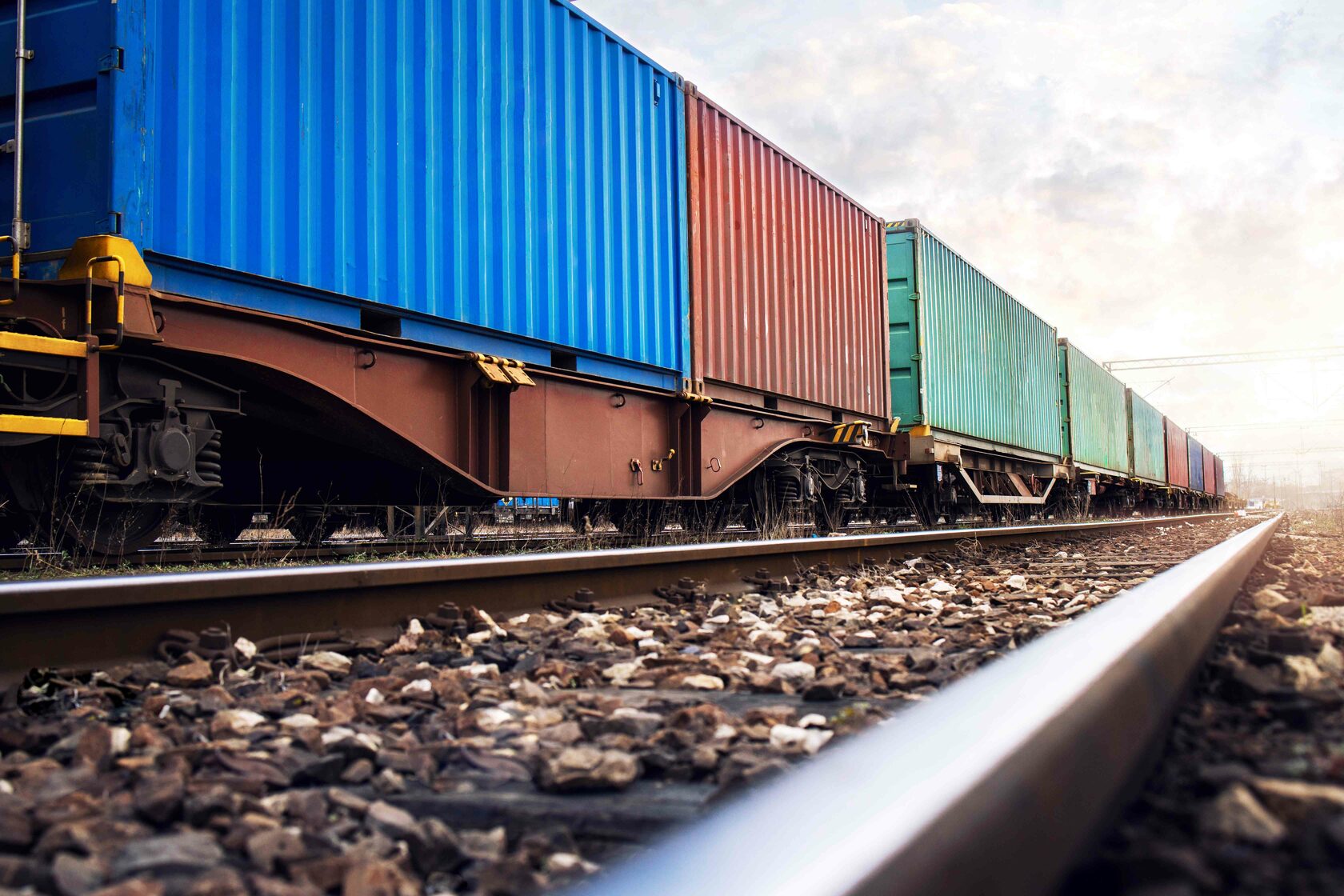In a time when unsustainable supply chains pose numerous threats to companies, jeopardising both the balance of our environment and society, as well as corporate interests, a wave of new EU legislation has emerged. In this in-depth article, we compiled an overview of the most important EU legislation aimed at mitigating those supply chain risks.
Within the last few years, several countries such as France (Loi sur le devoir de vigilance in 2017) and Germany (Sorgfaltspflichtengesetz in 2021) have pioneered national due diligence legislation of a mandatory nature. Currently, also the European Union has started to address the issue as a whole with its Corporate Sustainability Due Diligence Directive (CS3D), which should come into force in 2026. The proposal sets out a horizontal framework of obligations for companies based in Europe or providing goods or services into the EU, governing how they address human rights and environment through their global value chains, including operations of subsidiaries and business partners.
As a complement to the CS3D, the European Commission has put forth additional legislation proposals, such as the Proposal for a Regulation on batteries, the Proposal for a Regulation on deforestation-free products, or the Proposal for a Regulation to prohibit products made with forced labour on the Union market. All of those policies are aiming at companies’ value chain, emphasizing the critical need to approach due diligence with a comprehensive perspective.
This article is designed to provide you with the following:
- A holistic approach to the various EU legislations on sustainable supply chains
- Detailed information on the key components of each legislation
We will look into the following legislation:
Overview of Sector-Agnostic Supply Chain Legislation
Overview of Product-Specific Supply Chain Legislation
Overview of Product-Specific Supply Chain Legislation

Schema describing the distinction between Sector-Agnostic and Product-Specific legislation.
Overview of Sector-Agnostic Supply Chain Legislation
The CS3D requires your company to conduct due diligence and take appropriate measures to identify and address adverse human rights and environmental impacts along the value chain. This approach should follow a seven-steps approach, including:
- Integrating due diligence into the company’s policies
- Identifying and assessing actual or potential adverse impacts
- Preventing and mitigating potential adverse impacts, and bringing actual adverse impacts to an end and minimising their extent - including remedying actual adverse impacts
- Providing publicly available and effective notification and non-judicial grievance mechanisms at operational level
- Monitoring and verifying the effectiveness of due diligence policy and measures
- Publicly communicating on due diligence
- Consulting and engaging with affected stakeholders in a meaningful way
The proposal offers victims of harm the chance to hold corporations accountable, as victims have the option to file a civil liability claim with the appropriate national courts. Additionally, sanctions can include the removal of a company’s products from the market, “naming and shaming” tactics, or fines of at least 5% of the net worldwide turnover. Failure to follow the rules will result in a ban on non-EU companies from participating in EU public procurement. Also, directors are required to consider how their choices will affect sustainability issues in the short, medium, and long terms remedying actual adverse impacts.
The Proposal for a Forced Labour Regulation aims to establish comprehensive rules that prohibit the introduction of products made with forced labour into the EU market, as well as their export from the EU. Such prohibition applies to products for which forced labour has been used at any stage of their production, manufacture, harvest and extraction, including working or processing related to the products.
A product that a company sells cannot be sold in the EU or exported from the EU if the authorities claim that it was made using forced labour. Additionally, businesses will be subject to penalties under national law if it disregards the ruling of the Member State in which it is headquartered. Also, the European Commission will offer a representative, verifiable, and frequently updated database of risks associated with forced labour, in particular regions or with respect to particular products.
This regulation creates bridges with the European Commission’s proposal for an EU Directive on Corporate Sustainability Due Diligence. Compliance by companies with the due diligence requirements will affect the operation of the proposed Forced Labour Regulation.
Overview: Specifics of Sector-Agnostic Supply Chain Legislation

Overview of Product-Specific Supply Chain Legislation
The Deforestation Regulation imposes due diligence obligations on operators placing deforestation related commodities and some derived products on the EU market, or exporting them from the EU. The Regulation lays down mandatory due diligence rules for all operators and traders who place, make available or export palm oil, cattle, wood, coffee, cocoa, rubber and soy, as well as a number of by-products such as chocolate, furniture, printed paper and certain palm oil derivatives - used, for example, as components in personal care products.
If sourcing relevant commodities and products from a relevant country, companies will have to apply a tiered, mandatory due diligence system. The regulation introduces a benchmarking system to assess countries and their level of risk (low, standard, high risk) of deforestation and forest degradation driven by the commodities in the scope of the regulation. Furthermore, operators must carry out a risk assessment to establish whether there is a risk that the relevant commodities and products intended to be placed on or exported from the EU market are non-compliant with the requirements of this Regulation.
The new batteries regulation will impact the design, production and waste management of all types of batteries manufactured or sold in the EU. The new rules extend producer responsibility and require due diligence of supply chains to assess social and environmental risks, with a key focus on the supply of cobalt, natural graphite, lithium and nickel. New labelling will provide consumers with more accurate information on the social and environmental impact of batteries.
This regulation is intended to prevent or reduce the sourcing of minerals from regions where profits fund armed conflict. The regulation covers tin, tantalum, tungsten and gold (3TGs) sourced from the Democratic Republic of the Congo (DRC) and adjoining countries, though it also addresses minerals sourced from other high-risk areas. The Conflict Minerals Regulation already applies as of January 1, 2021 for importers of minerals and metals into the EU.
Specifics: Product-Specific Supply Chain Legislation

The aim of this article was to provide information on the forthcoming developments in the area of due diligence, which will have a major impact on all businesses operating within and outside the EU in the coming years. With some legislation already adopted and others still in the pipeline (CS3D and the Forced Labour Regulation), it is already clear that the demands on companies in terms of reporting will increase.
Please do not hesitate to contact us as we can provide a tailor-made solution for your specific needs.
(Image by aleksandarlittlewolf on Freepik)


